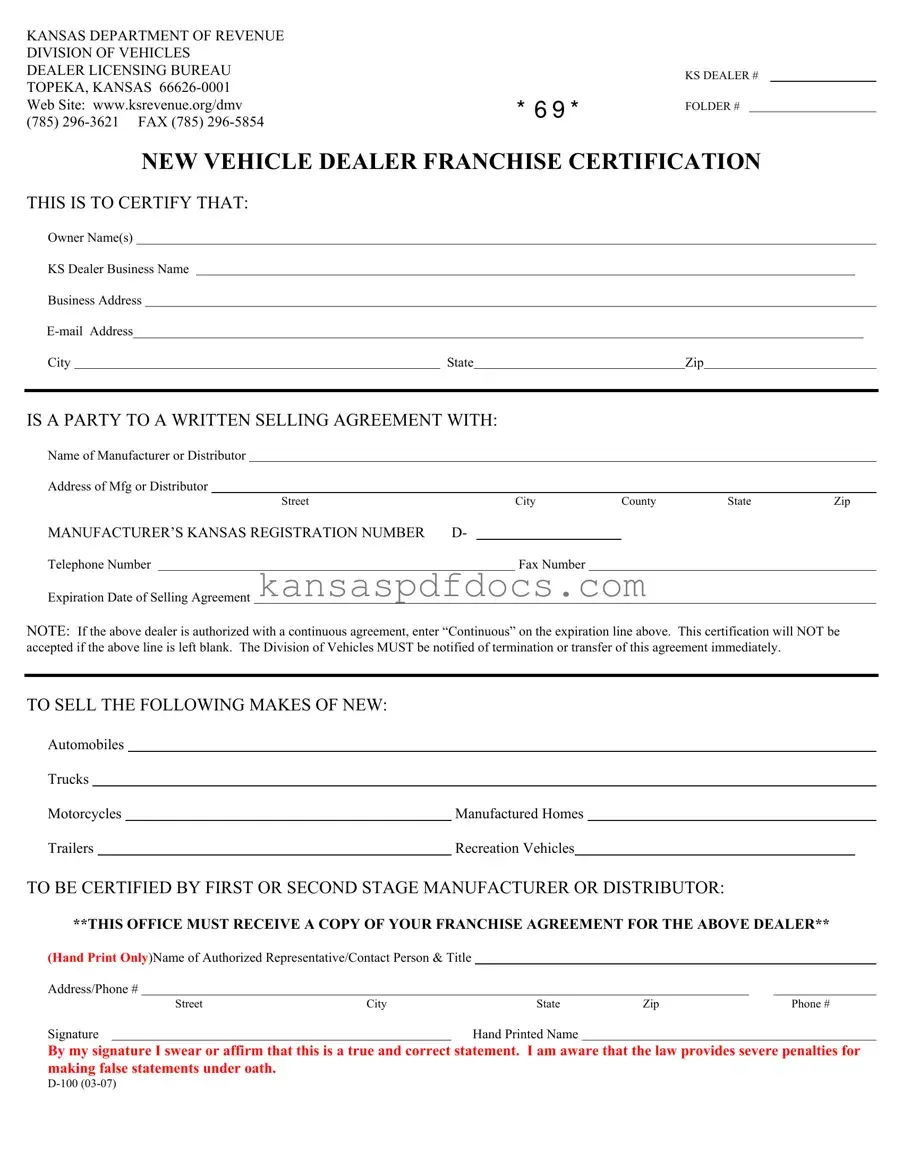Download Kansas D 100 Form
The Kansas D 100 form is a certification document used by new vehicle dealers in Kansas to confirm their franchise agreement with a manufacturer or distributor. This form is essential for dealers who wish to sell specific makes of new vehicles, including automobiles, trucks, and motorcycles. Proper completion and submission of the D 100 form is required to ensure compliance with state regulations.
Access This Form Now

Download Kansas D 100 Form
Access This Form Now
Your form isn’t ready yet
Edit and finalize Kansas D 100 online without printing.
Access This Form Now
or
Get PDF Form
